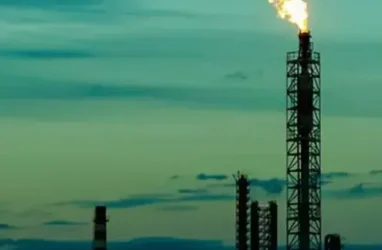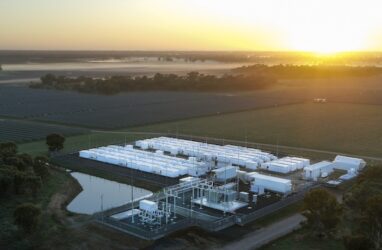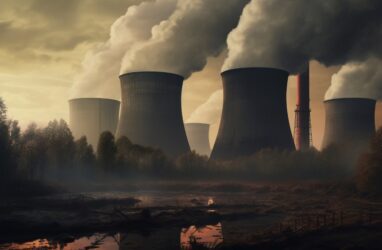Feed aggregator
Peter Dutton’s nuclear energy policy will do nothing to ease Australians’ hip-pocket pain, now or in the future
Carbon registry launches biodiversity programme, gears up for listing credits
AEMO sounds alarm as unplanned gas outage collides with winter coal snap, drought
The post AEMO sounds alarm as unplanned gas outage collides with winter coal snap, drought appeared first on RenewEconomy.
The race to protect “heartbeat” of the grid as wind and solar replace coal and gas
The post The race to protect “heartbeat” of the grid as wind and solar replace coal and gas appeared first on RenewEconomy.
Ziggy Switkowski and another big nuclear back-flip
The post Ziggy Switkowski and another big nuclear back-flip appeared first on RenewEconomy.
Letters come out for and against SBTi’s Scope 3 emissions proposal
Plucking numbers from the air: Victoria’s big build for housing relies on impossible targets
IRA clean energy incentives could be ‘on the chopping block’ with Trump’s re-election -report
Alarm bells in Central Africa as Congo Basin forests face 27% reduction by 2050
Chimpanzees ‘self-medicate’ with healing plants
US Forest Service advances plan to protect old-growth forests
California March gasoline sale lags 2023 levels, diesel picks up once again
Global solar to surge to 20% of power generation on north’s longest day of year
Energy Insiders Podcast: Homes, electric cars and the grid
The post Energy Insiders Podcast: Homes, electric cars and the grid appeared first on RenewEconomy.
Digital marketplace for physical commodities to launch voluntary carbon credit trading
WCI Markets: Impatience grows in CCAs, WCAs up on low volumes
Australia needs large-scale energy production – here are 3 reasons why offshore wind is a good fit
FEATURE: Voluntary carbon market embraces ozone projects despite public policy qualms
Monkeys got along better after hurricane - study
I was a Tory minister – but I think we need a Labour government | Chris Skidmore
Rishi Sunak’s decision to side with climate deniers isn’t just wrongheaded: it’s costing our environment and our economy
In 2019, the UK became the first G7 country to legislate for net zero carbon dioxide emissions by 2050. At the time, I was the cabinet minister who signed this into law. We did so knowing that taking action to tackle the climate crisis was supported by all the major political parties. We had no time to waste. It had been the Conservative party in opposition under David Cameron that had backed the Climate Change Act more than a decade earlier because we argued that climate action was more important than political divisions. As a result, the UK’s internationally renowned framework of carbon budgets has seen our emissions more than halve since 1990.
Britain has long been viewed as a clean energy leader across the world. We pioneered the first successful emissions trading scheme, followed by the contracts for difference model for funding renewable energy projects that made the North Sea into one of the largest windfarms in the world. A few weeks after delivering the net zero bill, I helped to secure the UK’s bid to host Cop26 in Glasgow. There, more than 80% of countries followed our lead and committed to a net zero target.
Climate and clean energy leadership has created jobs, growth and regeneration. The impact has been transformative. For the first time, wind power now makes up the largest source of our electricity. Coal, which used to make up more than 40% of our power when I was first elected as an MP in 2010, will from next year be consigned to the history books. Our economy has grown by 80% since 1990, and at the same time our emissions have halved. When I signed net zero into law, I always viewed our plan as a mainstream, even conservative, vision. One of the legacies of Cop26 is the growth in clean energy markets across the world. Elsewhere, the Inflation Reduction Act in the US and the green deal in Europe have committed to at least a decade of support for green industries.
Yet the UK now risks falling ever further behind in the net zero race. We have seen Rishi Sunak decide to prioritise new oil and gas expansion at a time when our fossil fuel industries are in rapid decline and will become stranded assets within decades. His decision to renege on net zero means the UK has scaled back on measures that would have saved households £8bn a year in lower energy costs. It has cost us the ability to lead in new technological markets and risks losing Britain the greatest economic opportunity in a generation.
Chris Skidmore is a former Conservative energy minister
Continue reading...






